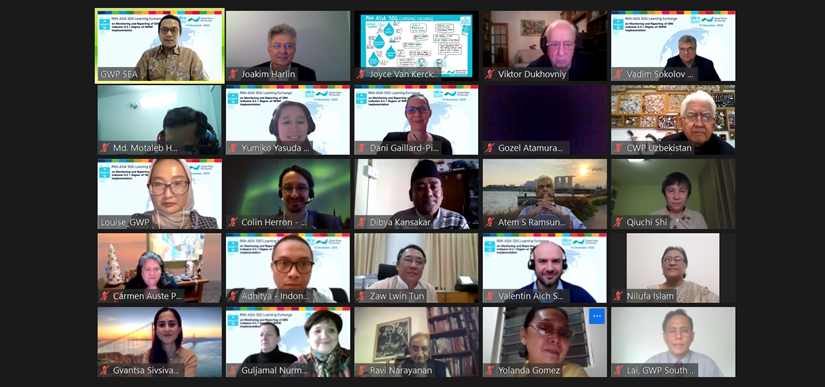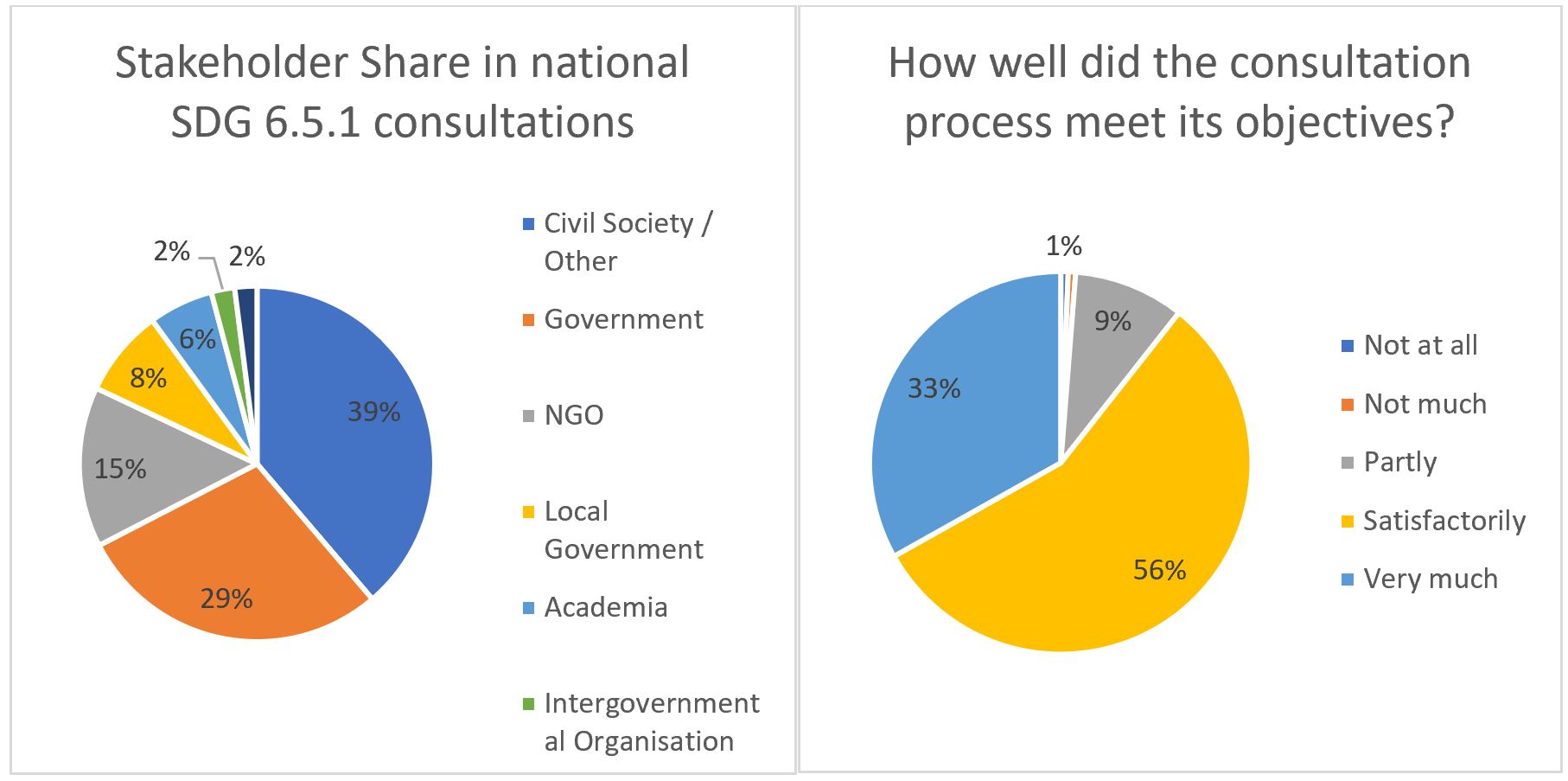The United Nations Environment Programme (UNEP), as the custodian agency for SDG indicator 6.5.1, rolled out the survey instrument and supporting materials at the beginning of the year for countries to report on their current status, by updating the 2017 baseline. GWP - in collaboration with with UNEP, UNEP-DHI Centre and Cap-Net – committed to the endeavour.
Yet at the beginning of 2020, the global health pandemic completely disrupted the “normal” way of working. “As many parts of the world went into lockdown to combat COVID-19, and the world adapted to new working conditions, it quickly became apparent that we would need to re-think how to provide assistance to countries in reporting on the status of their integrated water resources management,” says Colin Herron, Global Coordinator, Water Solutions for the SDGs at GWP. “We therefore doubled down on virtual means of consultation and activated our in-country networks to support their national governments in the best possible way”, he said.
Some of the measures that were taken included:
- A virtual support package and training of facilitators course was made available in English, French and Spanish, and was taken by around 250 facilitators, national focal points for SDG 6.5.1, and GWP representatives from all over the world.
- A note on options for virtual engagement was prepared and shared with SDG 6.5.1 focal points, to propose different models for countries to take on board the opinions of relevant stakeholders in water resources management.
- Virtual regional webinars were held with the SDG 6.5.1 focal points and the GWP network, to explain how assistance could be provided.
- UNEP extended the official reporting deadline, from May to July, to allow for more time for consultations.
At the end of 2020, the Support Programme is pleased to report that it was able to successfully financially and technically assist 61 countries in reporting on SDG 6.5.1, as well as providing technical support to at least nine other countries. The map below shows the broad global spread in the countries assisted, who held either virtual, hybrid or smaller in-person consultations, bringing together around 2,400 participants between the 61 countries, with the honours for the first-ever fully virtual consultation on SDG 6.5.1 going to Trinidad and Tobago.
The participants came from all relevant sectors, from the national and local levels, often bringing in relevant regional and international bodies. Participants were surveyed to request their perceptions on the consultations, with 89% of them stating that they felt the consultations had very much or satisfactorily met the stated objectives.
“We are encouraged by the great participation from countries in this process this year, despite the very challenging circumstances. We are listening to the challenges and opportunities countries have raised, and look forward to assisting countries in the coming years to make progress on IWRM, through the Support Programme, and therefore to boost their progress on SDG 6.5.1” said Gareth James Lloyd, Deputy Chief Manager at UNEP-DHI Centre.
In that sense, what follows now is the harvesting of the results from these consultations, at the sub-national, national, regional and global levels. While a global status report on SDG 6.5.1 will be published in 2021, many regions are also analysing the outcomes to build into regional IWRM agendas.
For example, on 10 December, GWP and UNEP organised a Pan-Asian SDG 6.5.1 Learning Exchange (the top picture is from this occasion), to bring together those involved in this process, with an eye to identifying shared challenges and opportunities for advancing on IWRM at a greater scale.
“I really appreciate the monitoring and reporting process of IWRM, which aims not only to identify the global IWRM progress toward the achievement of the SDG target, but more importantly how this monitoring and consultation process should also be of benefit to countries […] to collaboratively identify how those countries can move forwards to advance IWRM implementation in the future” said Dr. Inthavy, Chair of the Association of Southeast Asian Nations (ASEAN) Working Group on Water Resources Management, and Chair of GWP Southeast Asia, during the Learning Exchange.



